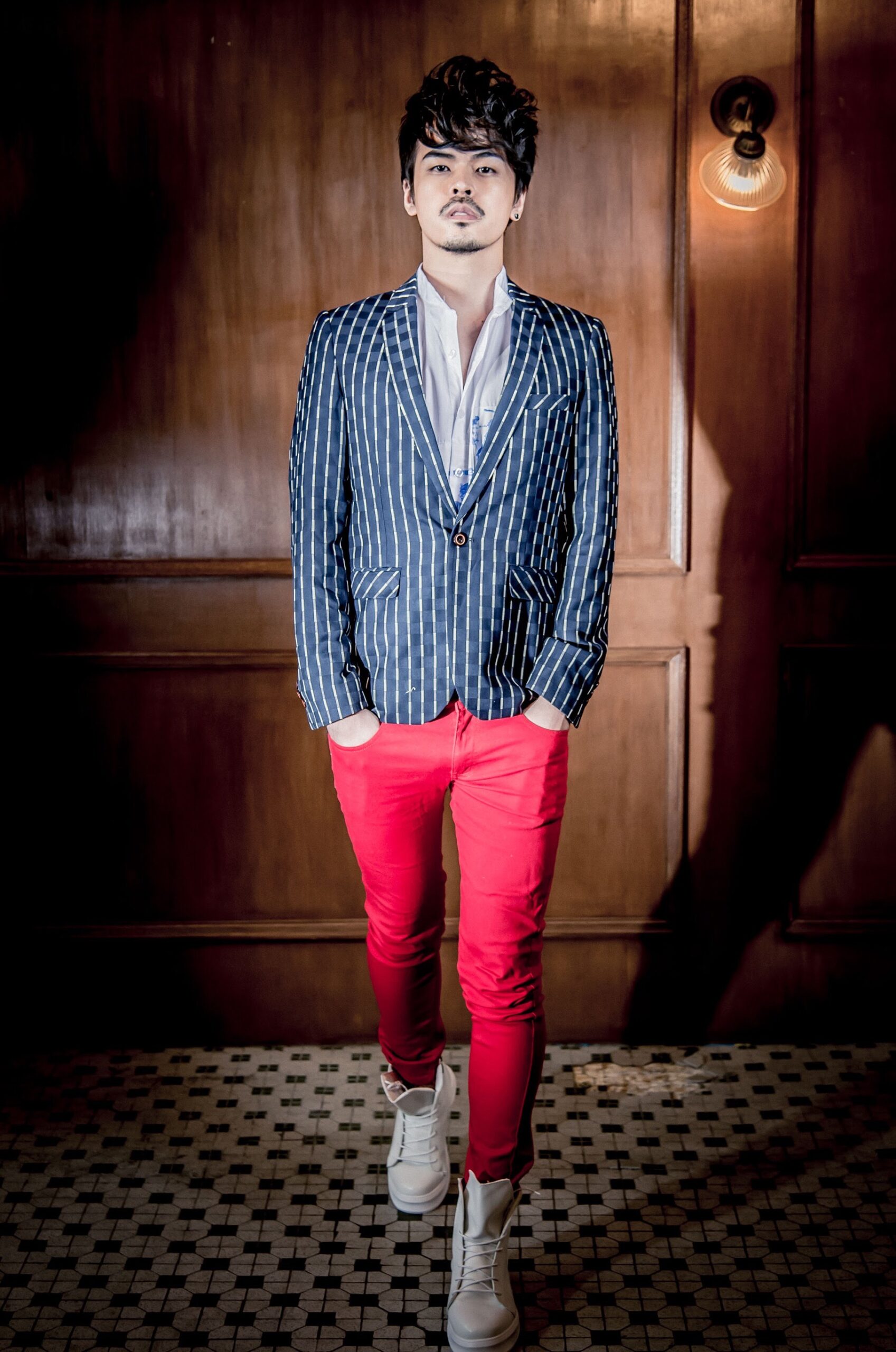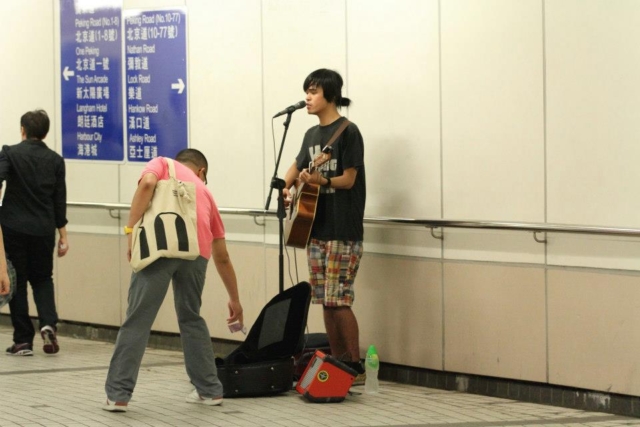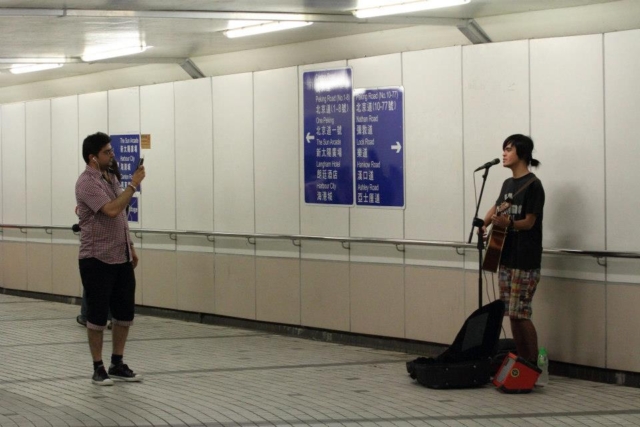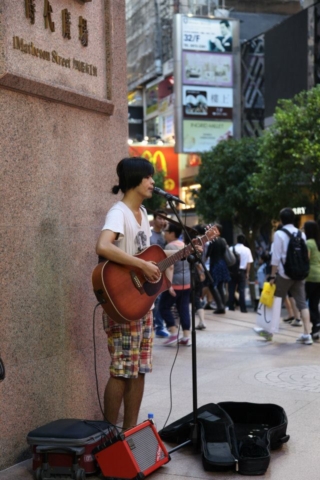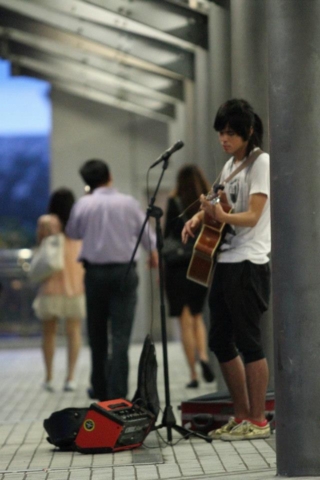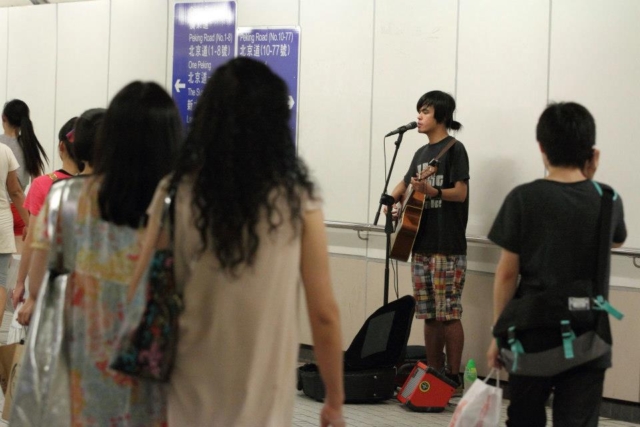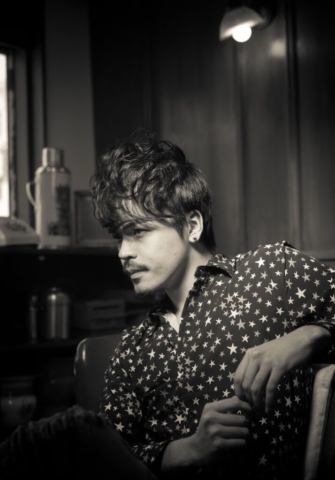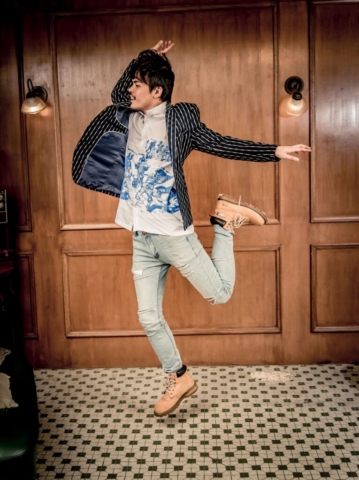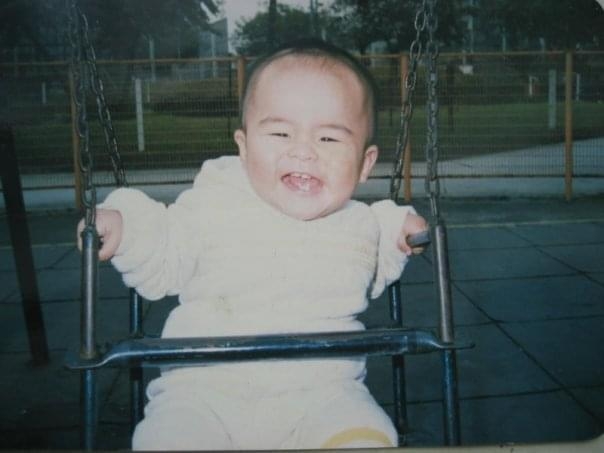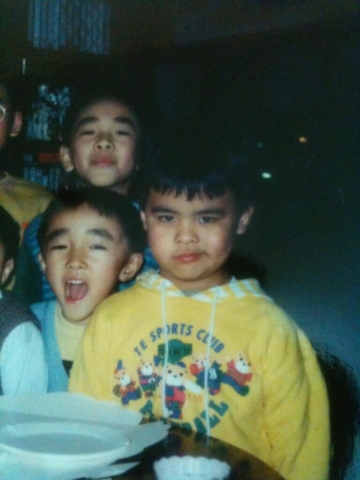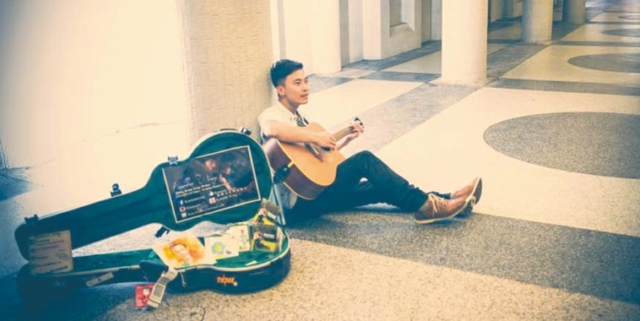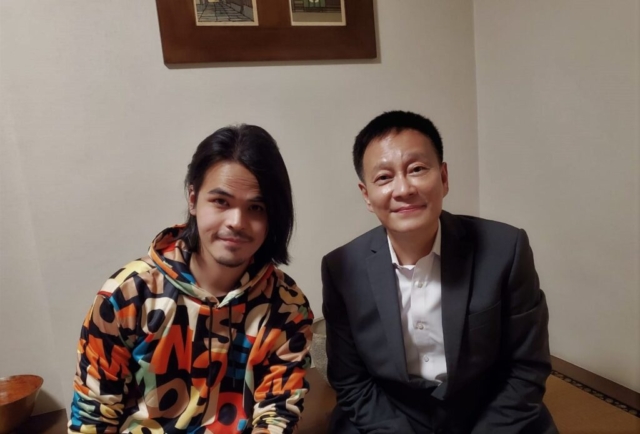18-03-21
Remember the lyrics of a great song?
‘strumming my pain with his fingers
singing my life with his words
killing me softly with his song’
I want you to feel the richness of a poor artist. Money does not mean richness. Yu Chun Tung(余震東) is a young singer, not yet famous but fully ready to be successful, and he is formerly a busker in the streets of Hong Kong. Tung said, “Although I am no longer in the streets, I continue to be a struggling sing-a-song writer. I came from grassroots in the Tai Po neighbourhood. After high school and music college, I told my parents I would work as a construction worker so that I could enjoy flexible hours in order to have time to sing in the streets. They supported me and this was how I got started as a busker. I sang in the tourist area Tsim Sha Tsui and business area Central.”
I asked, “Why not knocking on the door of a music company?” Tung said, “My life is simple, like my ways of doing things. If I want to sing, the easiest way is to get my guitar and buy some basic stereo equipment and go out to sing in the public. The street is a place where no one can stop my dream.”
I asked, “Did policemen stop you?” Tung was smart, “A clever busker will sing in different districts. Nobody is always down on his luck.” I replied, “What a life!” Tung added, “Different audience are in different areas. I prepare my repertoire for different tastes. I can sing more songs as a result.”
I was curious, “Any essential difference between these places?” Tung answered, “People in the office areas are more gentle, subtle and generous. They appreciate English songs. They often give me HK$10 or $20 bank notes, instead of coins. I remember on one occasion, an 80-year-old lady insisted on shoving some money into my hand. I asked why. She asserted that it was the polite and proper way to treat a busker as an artist.”
I asked, “Why did you give up busking a few years ago?” Tung said, “At first, I quitted the construction job because I wanted more time to write songs. Lucky that my parents forgave me for having no money to support them. On one day, I was scouted by an entertainment company. I was ready for a change and so surrendered busking.”
I asked, “Could busking become mainstream music?” Tung tapped his hand, “Perhaps. More and more buskers sing online too. There is no more boundary, if not defence, to define who should be a singer.”
I would like to make the conversation more lively as Tung seemed a quiet artist, “What is your signature song?” Tung laughed, “Well, for signature song from the marketing point of view, it is surely ‘Fly Me to The Moon’ or other oldies. Whenever I sang, people gathered around me.” I continued, “Did you make any CD for street sale?” Tung shook his finger, “No, I want my busking to be purely singing. I am a simple man.”
I asked, “Any busker that you remembered particularly?” Tung became excited, “A middle-aged lady, around 60, who was always dressed in red colour and sang in the pedestrian subways of Tsim Sha Tsui without any music instrument or amplifier. She sang very sugary Mandarin songs and tried, very hard, to grab more audience with her blasé eye flirts.”
I tested if Tung would show any humour, “How did you answer the call of nature?” Tung appeared poised, “Before my show, I did not drink a lot. It was hot outside too. When I had the need, I would pack all my stuff and rush to a nearby toilet.”
In Hong Kong, busking may be considered illegal and one can be arrested for it. So, if we believe busking is a kind of art and we are keen to keep the great musicians in the streets for a more culturally gratifying Hong Kong, can we make the law flexible?
This article can also be found at the following sites:




